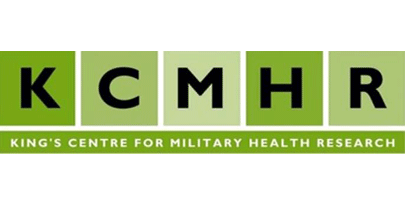New Systematic Review Assessing the Challenges of Returning to Civilian Life for Female Veterans
For many veterans, the transition from military to civilian life can be filled with challenges. It is not just about finding a place to live and a new job; it is also about redefining their identity, making new friends, and fitting into unfamiliar communities. For female veterans, this transition can be even more complex. Family responsibilities and gender stereotypes add extra layers of difficulty to their transition. Despite the growing numbers of women in the military and their expanding roles, there persists a lack of research and understanding about the unique experiences female veterans face when leaving the Armed Forces.
What did the systematic review look at?
Researchers at King's College London took a closer look at this issue by conducting a systematic review that has assessed qualitative studies on female veterans from Australia, Canada, New Zealand, the United Kingdom, and the United States. The review highlighted that any thorough understanding of women's experiences after leaving the military, needed to be grounded in an understanding of their in-service military experience. The challenges and obstacles women encountered during service significantly shaped their transition process.
What were the main findings?
The systematic review identified eleven themes covering in-service and post-service experiences. In the studies assessed, women veterans reported that military service was a constant balancing act between their identities as women, soldiers, partners, and mothers. They often faced challenges fitting into military culture and encountered gender-based discrimination, and harassment. Issues such as inadequate equipment, including body armour that failed to properly fit female bodies and a lack of healthcare tailored to women's specific needs, were prevalent. The research also identified serious concerns, including military sexual assault and insufficient support for affected individuals.
As a result of these negative experiences, women reported leaving the Armed Forces earlier than desired. They often felt pushed out due to a lack of advancement opportunities, family demands, and caregiving responsibilities that disproportionately fell on their shoulders. Women also left service due to sexual harassment and assault.
Once they entered civilian life, female veterans faced a whole new set of challenges. They struggled with identity shifts, social isolation, and a loss of purpose. Adjustments made to fit into the military, such as adopting masculine behaviours, were often out of step with the civilian expectations of women. Female veterans reported that healthcare and support services were unavailable or poorly suited to their needs. Female veterans in the studies felt dismissed by providers when seeking care for misunderstood chronic conditions, and the potential link to their military service was often overlooked or dismissed.
What does this mean?
Recognising and addressing the specific obstacles that female veterans face in-service is crucial for their successful transition and integration into civilian life. The review emphases the importance of addressing negative cultures in-service and developing effective healthcare and support systems as more women join the Armed Forces.
